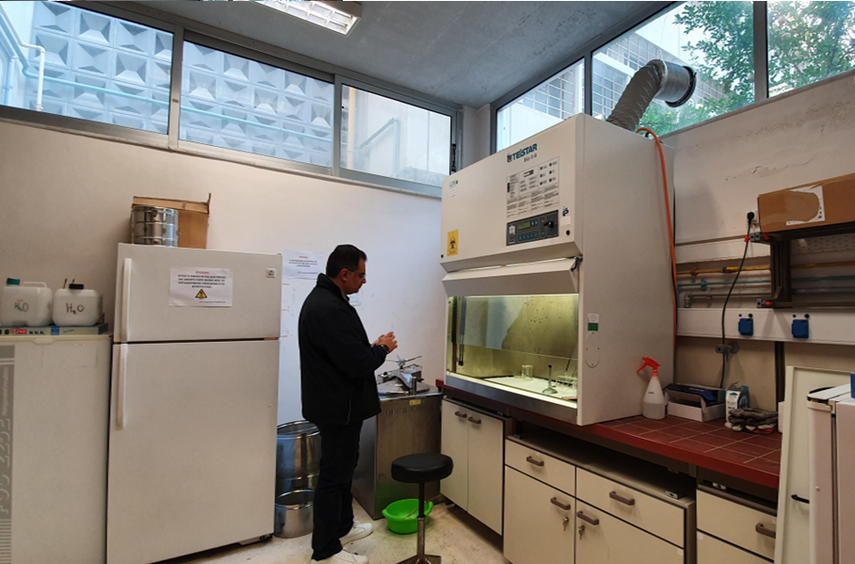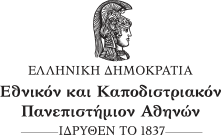LABORATORY OF FOOD CHEMISTRY
History and mission
In 1922, the Department of Chemistry of the National Academy of Sciences acquired the Department of Food Chemistry and is one of the first departments of Food Chemistry in Greece. Today, the laboratory is active in various research programs, provides specialized services in food analysis to both public and business organizations and its main research activities and services are:
- Qualitative and quantitative determination of bioactive ingredients (polyphenols, vitamins, carotenoids) of foods (eg beverages, wine, honey, oil, beer and general herbal products) and essential oils and study of their antioxidant capacity.
- Study of heavy metal levels (such as cadmium (Cd), lead (Pb), mercury (Hg), male (As)) in foods of Greek origin (vegetable and animal) and processed foods (eg canned) migration of heavy metals from packaging to food. Study of minerals (metals and metalloids) in food of plant and animal origin.
- Study of the factors that affect the biosynthesis of toxic fungal metabolites in agricultural products • Developing and validating methods for determining mycotoxins in foods. • Qualitative and quantitative determination of lipids of aquatic organisms (fish and seafood) [mainly polyunsaturated fatty acids (EPA, DHA), sterols, triglycerides, phospholipids, carotenoids] and the necessary metals to assess their nutritional value.
- Analyzes of quality control of milk, meat, alcoholic beverages, wine, beer, olive oil, honey and generally vegetable and animal products (fat, protein, carbohydrates, moisture, ash, dietary fiber).
- Microbiological analysis of food pathogens (Listeria, salmonella spp., S. aureus, E. coli etc.)
- Design and development of innovative food products with almost every year's participation in the SEVT Pan-Hellenic Competition, ECOTROPHELIA to create new eco-innovative food products.
- Provide patenting expertise and services to the Industrial Property Organization (OBI), which is the only competent body in Greece to patent patents and industrial designs.
Infrastructure and know-how
The Food Chemistry Laboratory has appropriate equipment as well as other analytical devices such as:
- Gas flame detector with flame detector and mass spectrometer (existing)
- Liquid chromatograph coupled with ultraviolet visible and fluorimetric detector
- Liquid Chromatograph - with Quadrupole Mass Spectrometry
- Atomic absorption with a graphite and flame oven
- Induced Conjugated Plasma Mass Spectrometer (ICP-MS)
- Device for determining proteins, fat, moisture, ash (existing)
- 3 Ultraviolet-visible spectrophotometers (existing)
- Rotary evaporators (2)
- Solid sample extraction device (existing)
The Scientific Coordinator Professor C. Proestos is the head of the research team with ongoing research activity focusing on the development of modern and efficient methods and workflows to study bioactive food ingredients to substantiate their food authenticity through the molecular characterized by omics technologies, based on high-resolution massom spectrometry (foodomics).
In particular, over the past three years, the research interest of Mr Proestos's team focuses on non-target analysis for the molecular characterization of food, identifying and quantifying unknown compounds to substantiate their authenticity, investigating their falsification, their geographical origin and the characterization of varieties of primary products, the molecular change of a food or mixture of raw materials during processing and presentation bioactive food content.

